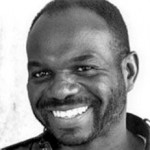POZ talks with Guillermo Chacon, vice president of the Latino Commission on AIDS, about the historic 2008 Latin/Hispanic Leadership Summit held on January 29 through 30. Chacon shares insights from the summit, including the group’s resolve to influence the next American president so that he (or she) will be more committed to fighting AIDS domestically and in order to better address the unique concerns of the domestic Latino community.
POZ: What were the key highlights of last week’s Latin/Hispanic AIDS Leadership Summit?
CHACON: One of the most important things that was very historic was that community leaders, people living with HIV, federal agencies and health experts came together to adopt a national Latino AIDS Action Agenda, which includes [a focus on] prevention, access to care, research treatment and advocacy. People have been working on this very hard nationwide [and they have been joined by people from] Puerto Rico and the Virgin Islands.
We agreed to establish a national network [of support] and to develop a two-year plan of action [to better address the needs of Latino people living with HIV and to prevent further infections]. We’re going to convene again in January of 2010, and [in the interim] the whole process will be facilitated by a well-balanced and well-represented national steering committee.
POZ: How did it feel to bring these influential people together?
CHACON: It’s very refreshing—when you talk about public health—to have an open, participatory process that allows different people to be a part of it. For example, a beautiful moment on day two of the summit was the adoption of a unanimous resolution in solidarity with Puerto Rico and also a resolution to put an end to the crisis there. It’s horrible.
I think this summit was a strong sign of hope on the eve of the presidential election. Right after Super Tuesday, we’re going to work very hard to present the Latino AIDS Action Agenda to both the Republican and Democratic parties.
POZ: Has the lack of this kind of national dialogue been a factor in Hispanics being one of the groups hardest hit by HIV/AIDS today?
CHACON: Yes, but also we understand that people are overwhelmed. Don’t forget, when we talk about Hispanics and Latinos we are [talking about a] very diverse [group of people]. You need to develop messag[ing] both in English and in Spanish, and in different dialects. Health workers struggle to deal with the various needs of Central Americans, Puerto Ricans, migrant workers and Mexicans. That’s a real challenge. The best medicine to confront that is partnership and collaboration.
POZ: How would you describe the atmosphere of the summit?
CHACON: The final resolution was one of unity, commitment and embracing a national agenda that we apply all over to [fight] AIDS in our community. We reached the impossible. If you asked a lot of people honestly, they would say it’s impossible to bring everybody together. They would say that there’s too much division, too much tension and people don’t get along. But we did it. We’re very proud that the national steering committee took the energy and time and were able to produce [the agenda]. It was a real milestone.
POZ: You mentioned the upcoming election. What would you like to see our new president do for your community?
CHACON: The only request that we have is that Hispanics and Latinos not be invisible. We need to be recognized as the second most affected community [in the U.S.] and we need to advocate for more funding and to work with those in other communities—including Anglo, African-American, Pacific Island, Native and Hispanic Americans living with HIV. [Our work] is about a comprehensive response to this crisis.
The CDC is getting ready to update the number of [new] HIV infections [in the U.S.], and it’s going to be a lot higher than 40,000. We need more funding to fight this epidemic domestically.
Advertisement
Advertisement
Advertisement






2 Comments
2 Comments